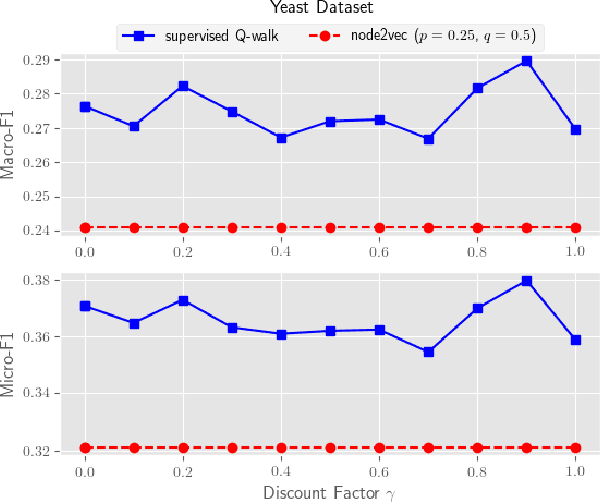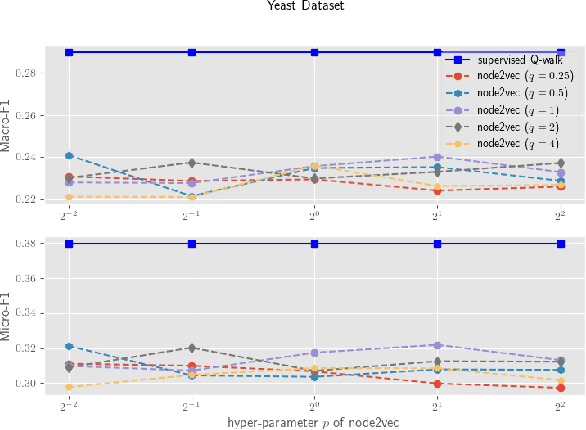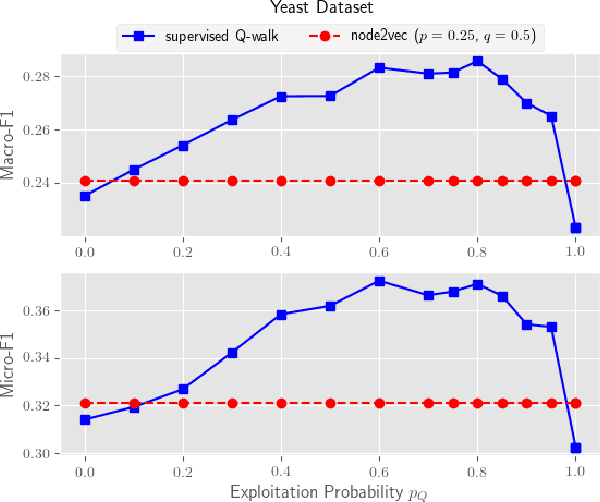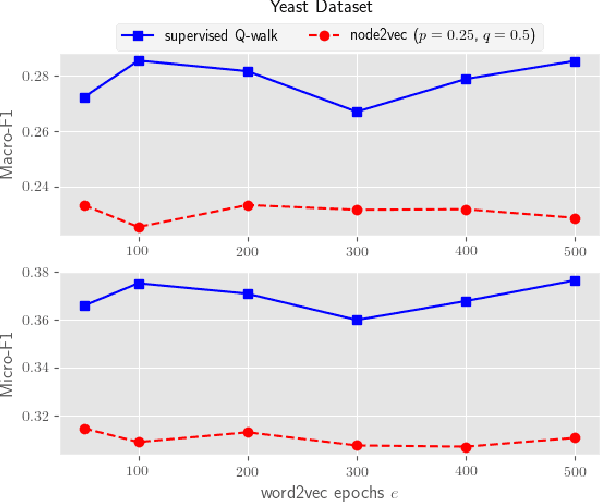Naimish Agarwal
Supervised Q-walk for Learning Vector Representation of Nodes in Networks
Oct 03, 2017



Abstract:Automatic feature learning algorithms are at the forefront of modern day machine learning research. We present a novel algorithm, supervised Q-walk, which applies Q-learning to generate random walks on graphs such that the walks prove to be useful for learning node features suitable for tackling with the node classification problem. We present another novel algorithm, k-hops neighborhood based confidence values learner, which learns confidence values of labels for unlabelled nodes in the network without first learning the node embedding. These confidence values aid in learning an apt reward function for Q-learning. We demonstrate the efficacy of supervised Q-walk approach over existing state-of-the-art random walk based node embedding learners in solving the single / multi-label multi-class node classification problem using several real world datasets. Summarising, our approach represents a novel state-of-the-art technique to learn features, for nodes in networks, tailor-made for dealing with the node classification problem.
Facial Key Points Detection using Deep Convolutional Neural Network - NaimishNet
Oct 03, 2017



Abstract:Facial Key Points (FKPs) Detection is an important and challenging problem in the fields of computer vision and machine learning. It involves predicting the co-ordinates of the FKPs, e.g. nose tip, center of eyes, etc, for a given face. In this paper, we propose a LeNet adapted Deep CNN model - NaimishNet, to operate on facial key points data and compare our model's performance against existing state of the art approaches.
 Add to Chrome
Add to Chrome Add to Firefox
Add to Firefox Add to Edge
Add to Edge